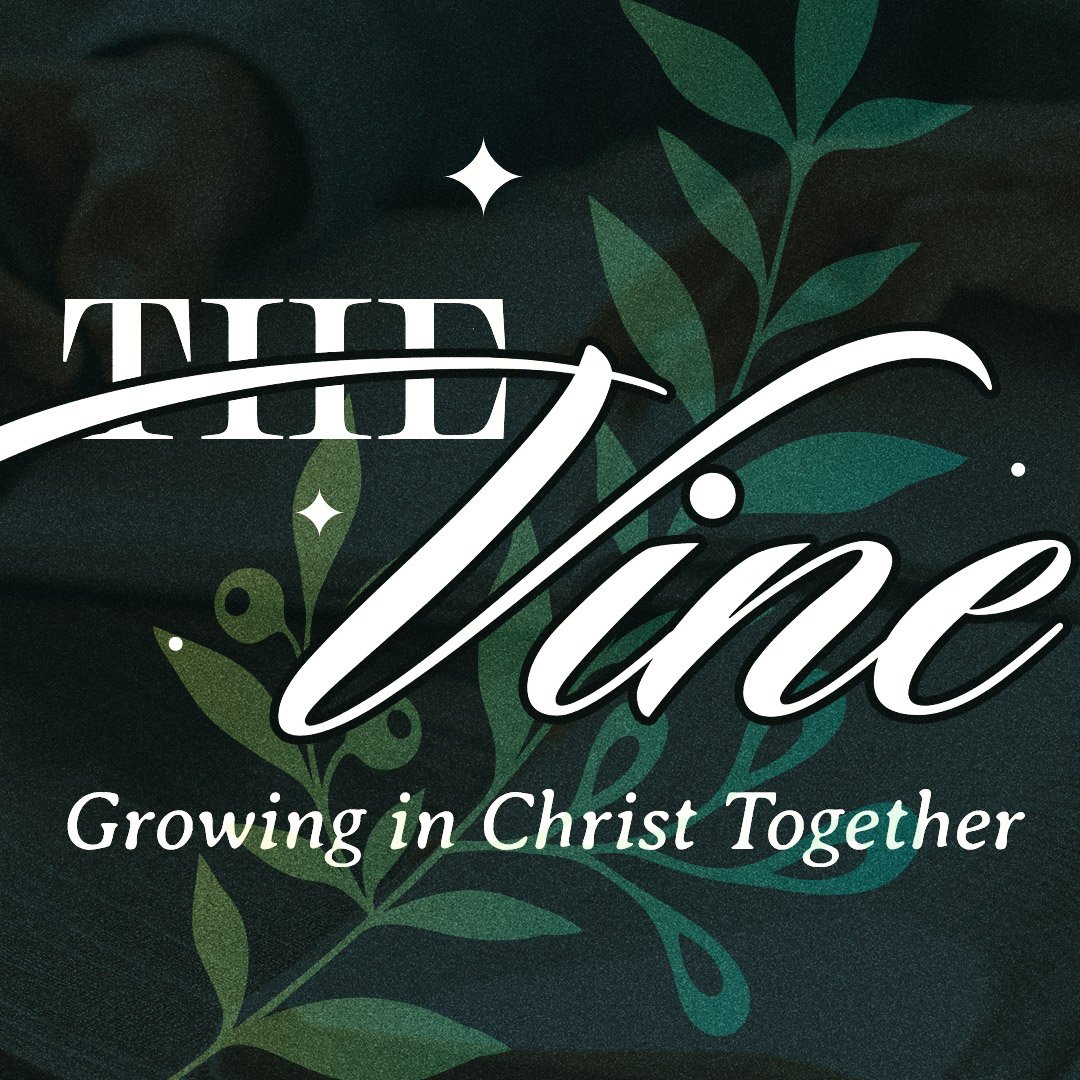The Vine: June 10
“Abide in me as I abide in you. Just as the branch cannot bear fruit by itself unless it abides in the vine, neither can you unless you abide in me. I am the Vine, you are the branches. Those who abide in me and I in them bear much fruit, because apart from me you can do nothing”
This is a weekly reflection on the previous week’s sermon text. Each week there will be a devotional related to the scripture for the week, along with questions for reflection/discussion, as well as prayer. Feel free to make this a part of your individual spiritual growth throughout the week or utilize in small group settings (growth groups, Sunday school, etc.)
“My God, my God, why have you forsaken me? Why are you so far from saving me, so far from my cries of anguish? My God, I cry out by day, but you do not answer, by night, but I find no rest.
Yet you are enthroned as the Holy One; you are the one Israel praises. In you our ancestors put their trust; they trusted and you delivered them. To you they cried out and were saved; in you they trusted and were not put to shame.
But I am a worm and not a man, scorned by everyone, despised by the people. All who see me mock me; they hurl insults, shaking their heads. ‘He trusts in the Lord,’ they say, ‘let the Lord rescue him. Let him deliver him, since he delights in him.’
Yet you brought me out of the womb; you made me trust in you, even at my mother’s breast. From birth I was cast on you; from my mother’s womb you have been my God.
Do not be far from me, for trouble is near and there is no one to help.
”
These words are very familiar to us. They capture the anguish of Jesus’ suffering and some of the exact words Jesus prayed on the cross (see Matthew 27 and Mark 15). These words are also familiar to us for another reason—they express the grief and pain in our souls when life is difficult and God seems distant.
Psalm 22 is one of many songs of lament found in the Bible. In fact, up to 65% of the 150 chapters in the Book of Psalms are laments! For centuries, the Psalms served as the prayer and song book of the Jewish people when they gathered for worship and prayer. While many Psalms praise God, Psalms of Lament express despair, anger, disappointment, weariness, and abandonment to God. This is why Psalm 22 is one of the most honest, vulnerable, and faithful prayers in the Bible.
This psalm reflects three characteristics of psalms of lament: telling God about disappointment or pain, asking God for help, and trusting in God’s faithfulness.
The first thing David does in Psalm 22 is tell God what is bothering him. He writes, “In you our ancestors trusted; they trusted, and you delivered them. To you they cried and were saved...” (Ps 22:4-5). In other words, “God, you took care of everyone else. Why not me!” There is nothing polite about this psalm—this is an honest, desperate prayer. C.S. Lewis is correct, “We should bring to God what is in us, not what ought to be in us.”
Next, David asks God for help, “Do not be far from me...” (Ps 22:11). Even though David is angry with life...and with God...he turns to God and asks him for help. God invites us to turn to him, not away from him, in our suffering and lament. David didn’t give God the silent treatment but rather talked to God about his struggles authentically.
This Psalm, like every lament, eventually leads to trust and praise. After talking to God honestly about his complaint and asking God for help, David ends his lament with praise, “You who fear the Lord, praise him! All you offspring of Jacob, glorify him and stand in awe of him...” (v 23). All lament, like all of life, is intended to ultimately lead us to our faithful God. As difficult and painful as this journey can be, lament is actually a gift that leads us to deeper faith and intimacy with God and greater empathy for others who are suffering.
In his book, Open and Unafraid, W. David Taylor reminds us,
“What we find in these psalms of lament...is never mere sadness. We find instead sadness before the face of God. For here is never mere complaint; here there is complaint brought to God, rather than kept from God.” John Calvin sums up well these psalms of lament, ‘[Here] we have permission given to us to lay open before [God] our infirmities which we would be ashamed to confess before men.’ This is an incalculable gift.” (p. 77).
Tell Him. Ask Him. Trust Him. This is the path—and the gift—of lament.
Questions for Reflection:
Scholars tell us that there are at least 20 verses that directly reference Jesus’ suffering on the cross. Read the entire Psalm and see if you can identify them.
Psalm 22 begins with, “My God, my God, why have you forsaken me?” Have you ever felt abandoned or distant from God. How did you express that to God? What does it mean to you that this was Jesus’ prayer, too?
How is lament different from whining or complaining? Do you think the church or society laments together well? Why or why not?
prayer:
Father, help me to pray honestly in my places I lament. Help me walk with others suffering heartbreak or injustice. Help me see you at work in my life and in all life. Amen!
Peace,
Pat
PREVIOUS WEEKS
To view all previous devotions go to https://fumc-rr.org/the-vine


